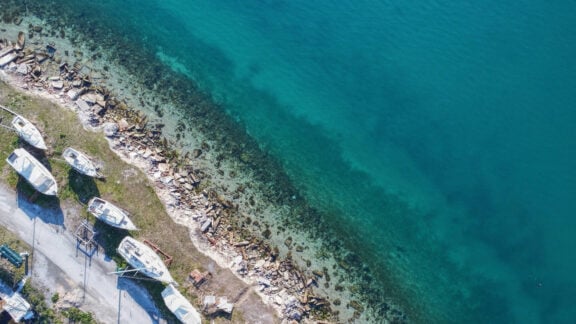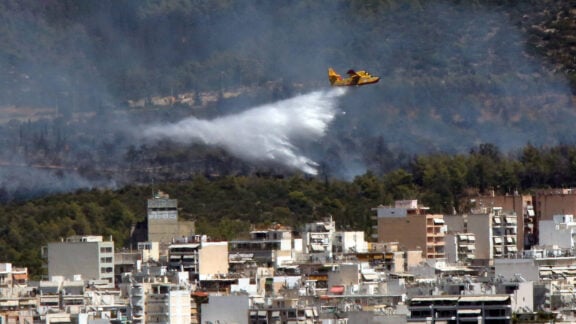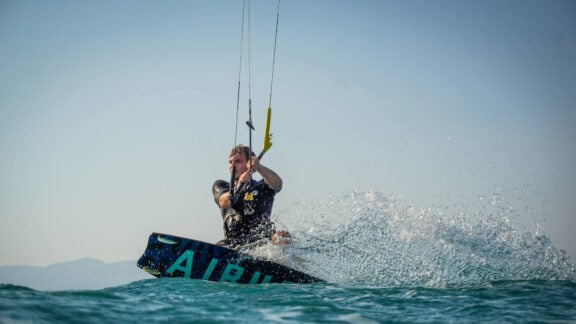The latest OECD Programme for International Student Assessment (PISA) results, published Tuesday, show a long-term decline in reading, maths and science skills for both Greek and Australian students.
The worldwide study measuring 15-year-olds’ scholastic performance in mathematics, science and reading every three years found that the Greek education system – stuck in rote learning – is stagnant at the lower end of the scale, ranking 42nd among the total 79 participating countries. Greek students perform worse in all three categories compared to the previous survey in 2015.
Greece’s score dropped from 467 points in 2015 to 456 in reading and comprehension, well below the 487 average. In mathematics, Greece and Cyprus both scored 451 points, also beneath the 489-point average. And in science, the result was 452, compared to the OECD average at 489.
Australia’s education system is all about active involvement rather than mechanical memorisation, and results appear good on the surface with the country ranking 15th overall with 503 points for science and maths, and 491 for reading. Despite results appearing to be satisfactory, Australian teenagers’ mathematics performance was a year below those examined in 2003, reading results were a year lower than those in 2000 and a year behind in science than those who sat the test 2006.
There were huge discrepancies between states, with Victoria outperforming NSW despite the opposite being true for NAPLAN results that test basic reading and mathematical acquisition. PISA on the other hand tests the ability to process information and knowledge.
Singapore was the highest performing country, with scores showing Australian students lagging three years behind their Singaporean counterparts in maths and three months behind in reading.
High performing systems were found mainly in Asia, with highest-performing countries being those that invest in their teachers so as to recruit the best people. Staff are offered support and opportunities for professional growth so that the latest teaching methods could be utilised.
READ MORE: Letter: A problem in the Greek education system
Countries with a willingness to reevaluate their systems and implement change are those whose students perform at a higher standard. For instance, Hong Kong performed at the same level as Australia in reading in 2000, but within five years, used a series of deliberate reforms to go up from 17th to second place in the Program of International Reading Literacy (PIRLS) test.
Then there’s the discipline, which is not linked to PISA academic scores but is also very telling of what goes on in the classroom.
Australia also ranked a lowly 70th out of 77 in the OECD’s 2018 index of disciplinary climate, a report linked to PISA that was released on Wednesday. The index was based on an international survey of 600,000 15-year-olds who shared their views about discipline in the classroom. A high proportion of Australian students gave feedback that teachers are not listened to. The only other countries that fared worse than Australia in unruliness were Belgium, the Philippines, Spain, Greece, France, Brazil and Argentina. Greek students also perceived their teachers as far less enthusiastic to those of other PISA-participating countries. The world’s most well-behaved students were South Koreans, followed by Kazakhstan, Albania, China and Japan.
Some Australian education policy makers have refuted the results for discipline, citing real behaviour as not well-represented as discipline scores are judged by the students as their own interpretation of perceived behaviour in the classroom.
The OECD says the point of PISA is not to demoralise but to help education systems improve by offering data and transparency. “The aim with PISA was not to create another layer of top-down accountability, but to help schools and policy makers shift from looking upwards within the bureaucracy towards looking outwards to the next teacher, the next school, the next country,” wrote Andreas Schleicher in the report with the latest batch of test results.
READ MORE: What’s the point of education? It’s no longer about getting a job
The results of high performing systems did not happen by chance. Countries can engineer their success and offer students optimal learning environments.
What Greece can do
Greece can note that PISA results are not linked to the amount of hours a student studies but to active learning and participation. The country needs to re-examine how it teaches maths, science and reading. Furthermore, recruitment procedures need to be reassessed to ensure that teachers are of the highest quality.
What Australia can do
Australian educators don’t need to radically change policy directions. Instead, the country should do things better with systematic efforts to improve scores and intensify learning. Teaching supports to facilitate this need to be put into place. After all, the devil is in the detail. Parental engagement should also be encouraged to create a good home environment.
READ MORE: Take the PISA test and see how you compare to the world’s average 15-year-old










